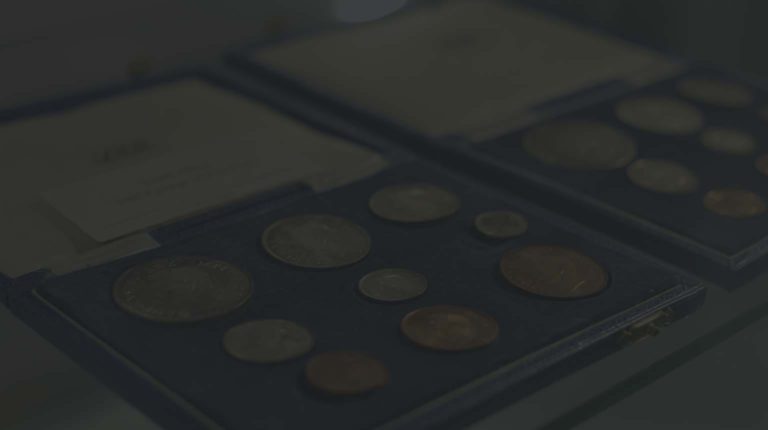On June 23rd of 2016, the UK voted to leave the European Union. Some cried, some cheered. British politics imploded. Shockwaves were felt around the world. Markets fell. The value of the pound dropped to near-record levels. ‘Economic Uncertainty’ became the number one contender for Phrase of the Year (The Word of the Year has already been awarded to ‘Brexit’).
Over the next two years, the UK will negotiate its exit from the Union. The ramifications of those negotiations are still somewhat shrouded in mystery, and the finer details are obviously yet to be resolved. No matter if you’re in the UK or elsewhere, the questions remain the same: will we be missing out? Will we benefit?
Amongst the wreckage of the political resignations and stock market turmoil, however, it can now be argued that ‘Brexit’ has created ‘the perfect storm’ for numismatics all around the world.

Back in 2015 we brought to the attention of our subscribers a petition against new cultural laws proposed by the German government, provenance laws that threatened the trading of numismatic items by applying provenance regulations that most numismatists would find difficult to adhere to. At that time, Baldwin’s subscribers were amongst the most vociferous in their opposition to the proposal, causing the legislation to be delayed.
In May of 2016, one month before Brexit, this petition was presented to the German Bundestag with nearly 50,000 signatures. To the dismay of collectors everywhere, it was rejected.
On June 23rd, as the UK was going to the polls, the German Bundestag adopted the new law, pending approval from the Bundesrat (it is worth noting that there were many concessions made regarding the sale of coins from the original document, but more on that later).
Apropos of this, on 15 and 16 September 2015, the European Parliament held a ‘legislative initiative’ on ‘Conflict Looting and the Importance of Provenance Research’.
This initiative, attended by all the major European governments (including the UK), aimed to address the role that the European Parliament played in ‘combatting the trafficking of plundered cultural heritage’.
Whilst this may seem at first glance tangential to numismatics (and collecting in general), it does have a direct effect on the buying and selling of coins. For anyone interested in history (and let’s face it, as numismatists we are de facto historians as well), the plundering and destruction of ancient cultural sites in certain parts of the world is of grave concern. And of course some of those items illegally removed from these areas inevitably include coins and other numismatic relics.
This European Parliament legislative initiative concluded by setting up a ‘Provenance Research Initiative Group’ to examine ‘provenance research as an indispensable mechanism to combat the trade in illicit antiquities’.
Whilst there are none among us who would disagree that provenance is most definitely an extremely good thing indeed, we can also agree that it is not always so straightforward, especially if new provenance guidelines are enacted retrospectively. Take a random coin from your collection, for example. Can you give a full history of that coin? Can you list the previous owners? Can you provide provenance going back over the last twenty years? Further, can you provide that provenance in writing?
The European parliament initiative on provenance research, along with the new German legislation, indicates that the buying and selling of coins in the future may well be a very different animal that it is at present. It will almost certainly mean that buying and selling your coins in certain areas will become far more difficult.
The UK now has two years (maybe much less if some reports are to be believed),to negotiate its departure from the European Union, and legislations that affect numismatics in general are inevitably going to be a part of those negotiations. In the case of the German Cultural law, the Bundestag has already pledged to revisit this in five years, with a view to tightening the concessions that the law made from its original form.
By that time, the UK will no longer be a part of the European Union.
So why the ‘perfect storm’?
Brexit has caused gold prices to rise exponentially as investors clamour to take refuge in precious metals (at the time of writing the price of gold stood at $1,317, and many commentators expect it to hit $1,400 in the coming months). The Royal Mint reported an increase of 550% in the sale of gold coins just one day after Brexit. Add to this the ‘economic uncertainty’ that is now engulfing both Westminster and Brussels (combined with speculation across the Atlantic of the perceived economic instability of a Trump Presidency), and we are presented with arguably the best time to buy rare coins that we have seen in recent years.
And of course, for those outside the UK, the value of the £pound (now at its lowest rate for decades) means that buying from within the UK means that you get a lot more coin for your, er, coin.
Whatever happens next, the world is set for some significant changes – both politically and economically. One thing we can be sure of, however, is that numismatics is set to be more popular and more fashionable than ever before, and that can only be a good thing for the collector.
Click here to view our stock for sale
Want to be the first to read new content? Sign up to our newsletter here.


